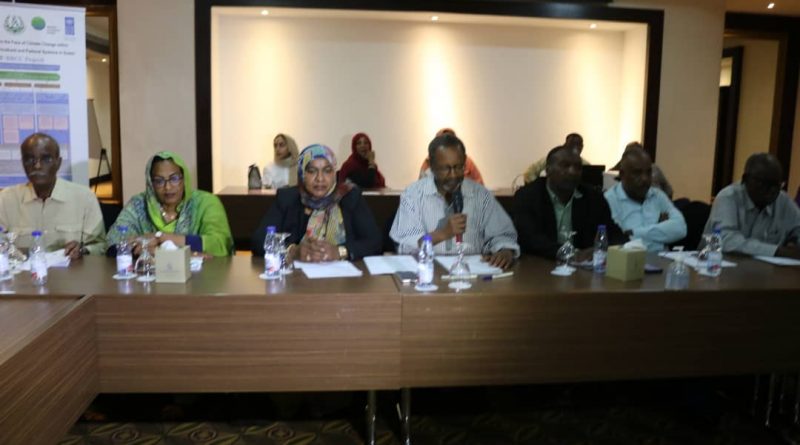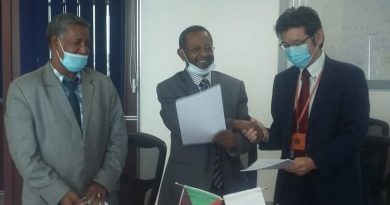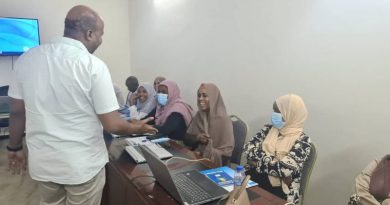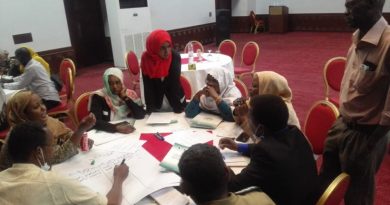Building Resilience project “Earn decent livelihood and healthy climate”
The Secretary-General of the Higher Council for Environment and Natural Resources, Dr. Mona Ali Mohamed Ahmed, stressed on the importance Building Resilience in the face of Climate Change within Traditional Rain fed Agricultural and Pastoral Systems in enhancing food security and achieving decent livelihoods for communities affected by climate changes
She expressed her pride and prestige, in the hard and fruitful work and tangible successes in implementing a number of activities which support adaptation to climate change, noting the need for continuous evaluation and monitoring of project activities and documenting the lessons learned.
This occurs when she was addressed at the Salam Hotel in Khartoum the conclusion’s workshop on Strategies for implementing the activities of the agriculture and water components of the resilience-building project in the presence of the general managers of the ministries of production and water officials in the states of East, West and Central Darfur, West and South Kordofan, Gedaref, Kassala, Red Sea, Northern and Khartoum states and the project partners in the ministries of irrigation and agriculture Finance, livestock, and service providers from research institutions, relevant authorities and civil society organizations.
The presentation on performance reports submitted by project managers in the mentioned states on the assessment of the base year stage, during the workshop revealed appreciable successes in increasing the productivity of food security crops. The success is attributed to the provision of improved and approved seeds from the Agricultural Research Corporation. The provided seeds proved their ability to early maturity, drought and heat tolerance. Besides , training and field application of Integrated agricultural technology packages, improving access to water sources, pastoral activity by spreading seeds, establishing pastoral fences, and building institutional and community capacities. In addition to workshops and awareness meetings with competent bodies for close coordination, holding training courses in the field and establishing partnerships with research agencies and the private sector, microfinance, evaluation and monitoring, which will have a positive impact in the current season. The current season will witness an expansion on provision of improved seeds and introduction of forestry activity by planting tree belts and encouraging inter cropping and women’s nurseries. In addition, 20 women’s farms will be established and linked through solar energy systems in cooperation with the Agricultural Research Corporation and the establishment of 19 wells and 11 water pool (Haffer) in five states using solar energy systems. The aim of these activities is to increase resilience of fragile societies to climate change. The workshop recommended providing adequate seeds according to the plan and the appropriate time, enhancing understanding with partners and stakeholders, and Commitment to pay the government component at the centre and state levels to support the implementation of the activities and providing guidance bulletins on agricultural technologies.Moreover, providing guidance brochures on agricultural technologies, as well as creating a budget for documentation and information, allocating financial funds to combat diseases and insect pests, and supporting state offices with administrative staff.It is mentioned that the project Building Resilience in the face of Climate Change within Traditional Rain fed Agricultural and Pastoral Systems is implemented by the Higher Council for Environment and Natural Resources. The project fund ($25 million) is provided by the Green Climate Fund through the United Nations Development Program, which provided $500,000 for a period of five years.




